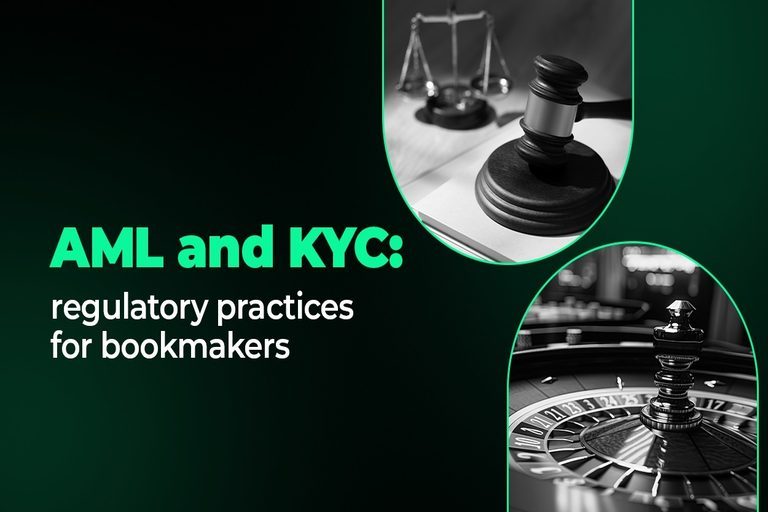iGaming through AML and KYC Regulations

Law 14,790 serves as a beacon, emphasizing the importance of robust regulatory frameworks like Anti-Money Laundering (AML) and Know Your Customer (KYC) protocols. These regulations are not mere formalities; they are essential safeguards against financial crimes, ensuring fair play, transparency, and the prevention of illicit activities within the iGaming sector.
Understanding Law 14,790 and its Implications
Law 14,790 prompts a critical evaluation of regulatory frameworks worldwide, highlighting their pivotal role in fostering a secure and accountable iGaming environment. At its core, this legislation underscores the significance of AML and KYC protocols, which act as bulwarks against financial malfeasance in the industry.
The Role of AML in iGaming Security
Anti-Money Laundering (AML) policies are instrumental in thwarting the laundering of illicit funds across various sectors. Anchored by Brazilian Law 9.613, which addresses financial crimes, AML regulations assume heightened importance within the iGaming realm. Given the substantial monetary transactions inherent in online gaming, stringent AML measures are indispensable for safeguarding operators and players alike.
KYC Procedures: Safeguarding Against Fraud and Underage Gambling
Complementing AML efforts, Know Your Customer (KYC) procedures necessitate thorough verification of customer identities. By mitigating the risk of fraudulent activities and underage gambling, KYC protocols contribute significantly to the financial security of iGaming operators. Upholding integrity and responsible gaming practices, KYC serves as a bulwark against illicit behavior within the industry.
Global Perspectives on AML and KYC: Lessons from Leading Jurisdictions
Across the globe, jurisdictions such as the United Kingdom, Malta, and Gibraltar have implemented stringent AML and KYC requirements for iGaming operators. These mandates compel operators to adopt robust measures, including facial recognition and identity proofing initiatives, to detect and deter money laundering activities effectively.
Insights from Industry Leaders: Weebet’s Perspective
Lenildo Nogueira, CEO of Weebet, underscores the pivotal role of legislation rooted in KYC and AML initiatives. He emphasizes that prioritizing these practices is crucial for ensuring the security of state entities, platforms, operators, and bettors alike. By staying abreast of regulatory developments, stakeholders can position themselves at the vanguard of the market, fostering trust and credibility.
Elevating Security Measures: The Imperative of Continuous Vigilance
While many iGaming platforms invest in security features, Elaine Rodrigues, head of customer success at Weebet, stresses the importance of ongoing vigilance. According to Rodrigues, meticulous attention to KYC and AML tools is imperative, coupled with robust platform implementation and adherence to operational guidelines. Only through a concerted effort to uphold security standards can operators effectively mitigate risks and enhance user experience.
The Intersection of AML, KYC, and Responsible Gaming
The confluence of AML, KYC, and iGaming legislation carries profound implications for operator safety, player welfare, and responsible gaming initiatives. By verifying players’ identities and monitoring their transactions, operators can discern patterns indicative of problematic behavior, thus promoting a sustainable and socially responsible gaming environment.
Automating Security Processes: The Role of Technology
In an era defined by technological innovation, the automation of security processes emerges as a linchpin for seamless operations. Elaine Rodrigues emphasizes the indispensability of quality software in ensuring the efficacy of security measures. By leveraging automation, operators can streamline compliance efforts, fortify their defenses against financial crimes, and enhance overall operational efficiency.
Conclusion: Upholding Integrity and Trust in iGaming
In essence, Law 14,790 underscores the imperative of stringent regulatory frameworks in safeguarding the integrity of the iGaming industry. By embracing AML and KYC protocols, stakeholders can fortify their defenses against financial crimes, foster transparency, and uphold the principles of responsible gaming. As the landscape of online gaming continues to evolve, adherence to regulatory standards remains paramount, ensuring a secure and enjoyable experience for all participants.
FAQs:
What is the significance of Law 14,790 in the iGaming industry?
Law 14,790 underscores the importance of robust regulatory frameworks, particularly AML and KYC protocols, in ensuring integrity and transparency within the iGaming sector.
How do AML policies contribute to iGaming security?
AML policies are instrumental in thwarting the laundering of illicit funds across various sectors, thus safeguarding operators and players against financial malfeasance.
What role do KYC procedures play in preventing fraud and underage gambling?
KYC procedures require thorough verification of customer identities, thereby mitigating the risk of fraudulent activities and underage gambling within the iGaming realm.
What are some global perspectives on AML and KYC regulations?
Jurisdictions such as the United Kingdom, Malta, and Gibraltar have implemented stringent AML and KYC requirements for iGaming operators, emphasizing the importance of robust compliance measures.
How can operators enhance security measures in iGaming platforms?
Operators can enhance security measures by investing in quality software for automation, ensuring continuous vigilance, and adhering to operational guidelines to mitigate risks effectively.
What implications does the intersection of AML, KYC, and iGaming legislation have?
The confluence of AML, KYC, and iGaming legislation carries profound implications for operator safety, player welfare, and responsible gaming initiatives, fostering a sustainable and socially responsible gaming environment.
How does automation contribute to security processes in iGaming?
Automation plays a pivotal role in streamlining compliance efforts, fortifying defenses against financial crimes, and enhancing overall operational efficiency within the iGaming industry.
Why is ongoing vigilance essential for iGaming operators?
Ongoing vigilance is essential for iGaming operators to maintain the efficacy of KYC and AML tools, coupled with robust platform implementation, to uphold security standards and enhance user experience.
What measures can operators take to detect problematic behavior among players?
Operators can detect problematic behavior among players by verifying their identities, monitoring transactions, and discerning patterns indicative of potential risks, thus promoting responsible gaming practices.
How does regulatory compliance contribute to the credibility of iGaming platforms?
Regulatory compliance, particularly adherence to AML and KYC protocols, enhances the credibility of iGaming platforms by fostering trust, transparency, and accountability among stakeholders, thereby ensuring a secure and enjoyable gaming experience for all participants.
Recommended Posts

Buffalo’s Wealth Slot Game by 1spin4win
July 26, 2024

Mobile Payments in iGaming
July 26, 2024




